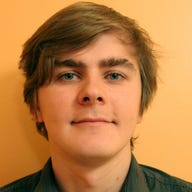How software developers and engineers worldwide linked up to take on coronavirus

On March 12, Estonia's government decided to declare a state of emergency over the worldwide pandemic of coronavirus COVID-19 and the threat of mass infection. By that time, 464 tests had been conducted in Estonia and 16 people were known to have the disease.
But the evening before the emergency was declared, members of a government-funded innovation program were already thinking about how to tackle some of the problems that this extraordinary situation was to bound to create.
"We knew we could come up with something," says Mikk Vainik, head of innovation project AccelerateEstonia, which was started by Estonia's Ministry of Economic Affairs and Communications last year.
SEE: Digital transformation: A CXO's guide (ZDNet special report) | Download the report as a PDF (TechRepublic)
"And by the next morning, one of our team members presented the idea of an online hackathon."
The local startup community behind the international hackathon series, Garage48, joined in and a hackathon called Hack The Crisis was held the following weekend.
Although it was organized in only a couple of days, interest in it was overwhelming, with more than 1,000 participants taking part from around the world.
The winning solutions included a hub for coronavirus-related volunteering and a corona-tracker, which analyzes a person's symptoms to estimate a COVID-19 risk level and also shows the risk level of nearby locations.
"What I really like about the results is that there were some solutions that have scaled fast and have already gained interest from other countries, such as the platform VAAB, which connects volunteers with a medical background," says Vainik, adding that 10 of 30 teams that participated in the impromptu hackathon are still actively working on their projects.
After the first hackathon, things started to move rapidly.
"When we organized the first hackathon, we received a lot of support from tech communities in various countries from all over the world. And then they wanted to do something similar in their own countries. There have been over 50 local hackathons held since around the globe," Vainik says.
"When we saw that there's an interest and need – as dozens of countries had already planned or held their hackathons – the idea to organize something bigger, where all the countries could participate, was born. This way the teams would have a bigger impact and a greater possibility to save more lives worldwide."
As a result, the Global Hack event took place in the second weekend of April. Vainik, who was one of the organizers, says the most difficult thing about the whole exercise was managing cooperation.
"Organizing a hackathon is always a bit chaotic, even more so with Global Hack because of the scale and distance. To build the whole process, we needed a completely new approach because of the scale."
In addition to the Estonian organizers AccelerateEstonia, Guaana, Mooncascade, and Garage48, international tech communities joined in and partners were found very quickly using social networks.
Among the mentors and track leads who decided to join in were venture capitalist Steve Jurvetson, co-founder of LinkedIn Reid Hoffman, CEO of OpenAI Sam Altman, former chess world champion Garry Kasparov, and former president of Estonia Toomas Hendrik Ilves.
The European Commission also decided to support the event by providing extra prize money and input for the government-related challenges to be hacked.
Before the hackathon began, everyone shared and discussed their ideas in Slack and found teammates to take on specific projects that they were interested in.
The ideas were divided between 12 tracks ranging from Health & Wellness to Arts & Creativity. After the participants had organized themselves into teams of two to 12 people, the team leader had to register the team and their idea in Devpost.
Then the real work began. Two days of hacking had to result in a video demo of the prototype, which explained the problem, how it was solved, and what its impact would be.
SEE: Digital identities: Why this Balkan country aims to match Estonia's successes
The winner was a project called Suncrafter, which develops a mobile disinfection station based on upcycled solar generators. It was also a favorite of Vainik's.
"If constant disinfection becomes the new normal in our lives and their solution works, it could make disinfecting more convenient and environmentally sustainable for everybody," he says.
Because Global Hack had over 12,000 participants from more than 100 countries, who worked on 500 different projects, Vainik firmly believes that the Global Hack movement will live on and AccelerateEstonia will participate in it again in the future in one way or another.
"One hackathon is not enough to implement the innovative ideas. There needs to be a whole process for it," he says.